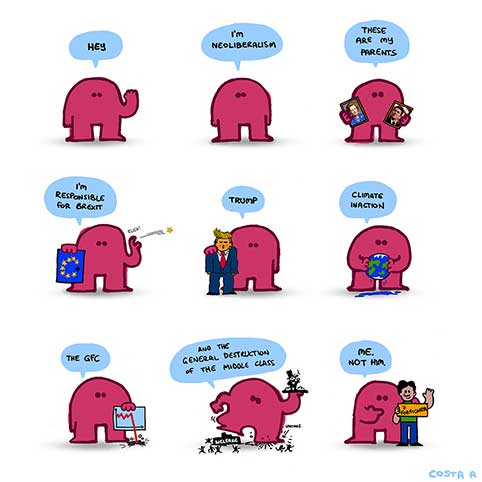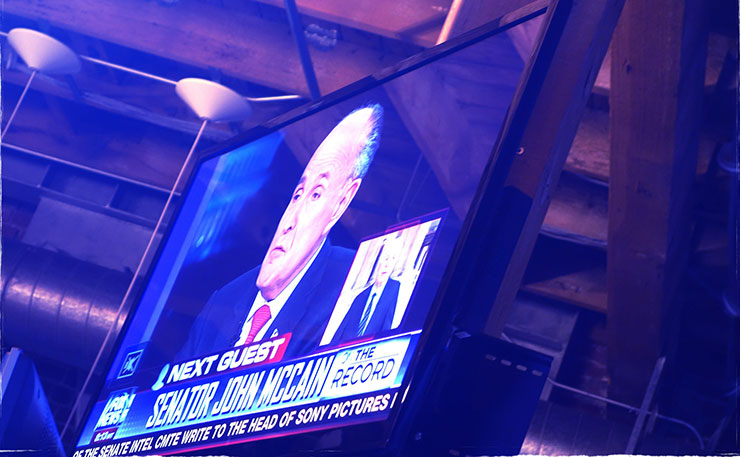Confidence in the media has long been low, but can we really afford a society without truth and balance, asks Dr Johan Lidberg.
The Oxford Dictionaries recently coined ‘post-truth’ the 2016 word of the year. The definition according to Oxford Dictionaries is ‘relating to or denoting circumstances in which objective facts are less influential in shaping public opinion than appeals to emotion and personal belief.’
This poses major challenges for journalism whose main currency is seeking to report as factually and truthfully as possible (there is of course no such thing as absolute truth as it depends on your initial point of view). If your audience is not prepared to listen to and consider facts, what is then the point in spending months on researching and uncovering hidden truths and facts?
Based on this, blaming the media and journalists for the Brexit vote and the election of Donald Trump is too simplistic and partly unfair. Sure, the media did play a role in not taking Trump seriously and giving him oodles of free air-time. And British journalists may not have picked up on the divides in the UK leading up to the Brexit vote. But there was also a lot of in-depth reporting and fact checking.
After each debate between Clinton and Trump the list of misrepresentations and outright lies by Trump (and to a much lesser extent Clinton) were listed on the big news sites, but we know now that the public clearly disregarded this in droves.
This is something new. Fact checks, when they came to renewed prominence a few elections ago, used to be very important tools for the voters when they made up their mind. Lying or misrepresenting was not ok back then. It is now. There are many possible reasons why some sections of the public have turned off facts:
- The growing economic divides in society are finally catching up with the politicians, which means the voters will vote for anyone they think can provoke change regardless of who it is and what they say. There are deeply disturbing historical precedents as to where this may lead. The most troubling examples can be found in Europe during the 1930s.
- The media has turned their audiences off facts by focussing too much on ‘click bait’ stories such as cat videos and gossip journalism.
- A lack of serious engagement between the media and its audiences – the public feels it is not being listened to by the media, so why trust it?
There are probably also a whole suite of deeper psychological factors such as ruthless politicians using the global state of flux and uncertainty to stoke fear and use that to gain votes. This is aided by historically high levels of secrecy surrounding what is done in the name of security by intelligence and security agencies around the world working on behalf of governments.
We have been, as the Italian political philosopher Giorgio Agamben puts it, in a global ‘state of exception’ (manifest by increased powers to intelligence and security agencies) since September 11, 2001.
So, while media and journalism certainly is part of the puzzle, in the end the public will get the politicians they deserve.
The Brits wanted Brexit and will now have to live with the consequences. The Americans wanted Trump, unfortunately the whole world has to live with their choice. No-one forced the Brits and Americans to cast their votes the way they did.

Where does this leave journalism? Arguably the post-truth and fake news climate makes real journalism more important than ever. In a way it gives the industry an injection bringing home the importance of upholding the basic journalistic values of gathering, critically assessing and presenting (in a compelling way) information and stories the public need to be self-governing and to participate as fully as possible in our common public affairs. Post-truth and fake news is the complete opposite of this.
Facebook and other social media platforms need to step up and assume the responsibility of the publishers that they are. To not admit to and realize that they need to make responsible publication decisions is to let the public and democracy down.
It is likely journalism schools will play an increasingly important role in not only training future journalists and equipping students with theoretical and practical media literacy skills, but actually producing in-depth and investigative journalism to complement what the industry produces.
There is also scope for more collaborations between universities and the industry to produce more public interest journalism.
Based on the above the antidote for post-truth and fake-news is to produce more (not less) quality journalism, convince Facebook and other social media outlets to take their responsibility as publishers and clearly label fake news, and start a serious discussion on how to support real news and journalism.
One concrete example could be tax breaks for real news/journalism companies. Media companies and journalists should also seek to seriously engage with its audiences as part of a strategy to build greater trust.
If we don’t support real news over fake news Stephen Colbert’s satirical political pundit persona may be believed to a greater extent when he claimed in his famous 2006 ‘truthiness’ skit that you should always go with what your gut tells you because ‘we’ve got more nerve endings in the gut than in the head’.
Donate To New Matilda
New Matilda is a small, independent media outlet. We survive through reader contributions, and never losing a lawsuit. If you got something from this article, giving something back helps us to continue speaking truth to power. Every little bit counts.






